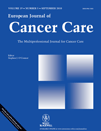Not telling the truth: circumstances leading to concealment of diagnosis and prognosis from cancer patients
Abstract
SHAHIDI J. (2010) European Journal of Cancer Care19, 589–593
Not telling the truth: circumstances leading to concealment of diagnosis and prognosis from cancer patients
While autonomy has gradually become a key concept in the doctor–patient relationship, truth-telling is far from being the norm in many countries in the world. Despite the general agreement on the benefits of open communication between physicians and cancer patients, there is still strong resistance against disclosure of cancer diagnosis and prognosis in many cultures. Although fear of causing psychological morbidity to patients and their reluctance to find out the truth are two main justifications of non-disclosure attitudes, there are other important contributing factors that need to be further explored and better understood including those related to the relatives, doctors and healthcare systems. Cultural disparities in attitudes towards truth-telling persist; however, these differences should not be used as excuses not to respect the rights and individual preferences of cancer patients by making assumptions based on their age, sex, type of cancer, language and/or cultural background.




